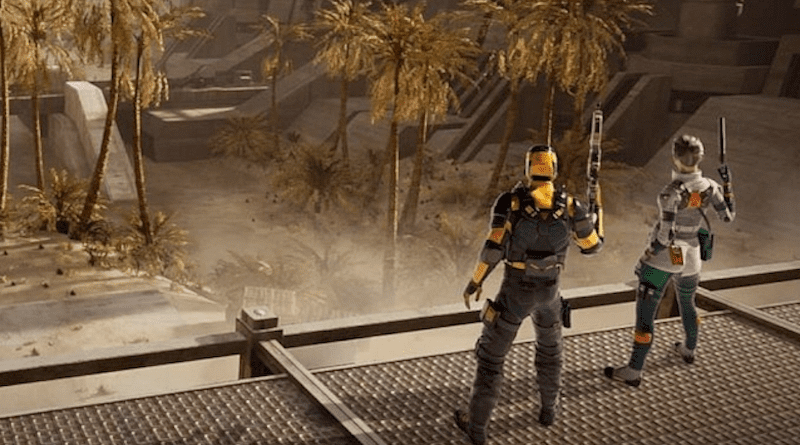Citizen Conflict Forging Bridge Between Web2 Gaming And Web3 Innovation
Where does the success of legendary game titles such as World of Warcraft, Counter-Strike, and League of Legends stem from?
QORPO Game Studio said that it believes that immense popularity is garnered by the ability to entertain players for long periods of time within an elaborate and functioning ecosystem. Citizen Conflict aims, in practice, to let retail players organize tournaments and earn from non-centralized esports without endless hours of training. The QORPO model lets anyone become a pro, according to the company.
However, this concept is faced with two major problems: the corporatization of traditional web2 titles and the uncompetitive quality of web3. To address and solve this issue, the developers at QORPO set about the project of building a bridge between the two worlds, within a seamless and well-integrated ecosystem of AAA games.
Monolithic Past and Uncertain Future
Most blockchain games cannot keep up with traditional titles. From the graphics and visuals to gameplay dynamics, these games are more akin to standards 15 or more years ago, rather than modern expectations, according to QORPO, adding that often, blockchain games can’t retain players for reasonable periods as their models aren’t based on high-quality gameplay, but elusive promises of profit backed by inflated cryptocurrencies, symptomatic of play2earn ethos.
Having said that, traditional web2 games, while more suited to modern gameplay standards, don’t offer power and freedom to the community. In-game assets are mostly a black hole, as players don’t really own what they paid for, legally speaking, so those few pixels called ‘skins’ are not truly theirs, QORPO said.
From the perspective of competitive gaming, traditional leagues and tournaments are walled gardens governed by third-party authorities and are reserved only for professional esports players. Thus, just like the whole web2, over the last decades, traditional gaming has become too corporate and monolithic, according to QORPO.
Forging the Bridge Between Web2 and Web3
Rastislav Bakala, CEO and Founder of QORPO, said, “Our target is to bring the best players from both worlds. Besides high-quality gameplay standards with an immersive storyline and crispy graphics, Citizen Conflict gives the power back – into the hands of players.”
After signing in to a QORPO ID, which works the same as any other gaming platform registration, players can download the game and enjoy the gameplay seamlessly without ever knowing they entered the waters of web3. On top of that, any in-game asset that a player buys or wins belongs to them exclusively, and to no one else, QORPO said.
Bakala continued, “QORPO is eager to disrupt the centralization of esports. Players can look forward to regular sponsored tournaments and generous prize pools. You no longer need to spend long hours training or having sponsors to make it to the big league. Going the extra mile, players can also organize their own tournaments; as a result, everyone can earn from esports now.”
Continuing Where the Metaverse Failed
Speaking of well-integrated ecosystems not seldom pertains to the already flawed idea of so-called metaverse pursuits, sought-after by Mark Zuckerberg or Tim Sweeney. The up-to-date cyber world, though, doesn’t have to be just poor graphics and vain efforts. QORPO’s vision is to forge a seamless ecosystem of high-quality games under one roof with a universal player’s ID.
QORPO claims that Citizen Conflict, a free-to-play, team-based shooter game set in the cyberpunk dystopia of the Ether Islands world, is just the start. QORPO said it aims to build a whole universe of AAA games, each equipped with unique graphics, elaborate gameplay models, and robust, book-worthy storylines.

